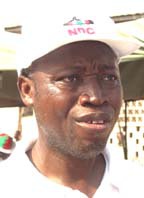Mr Bede Ziedeng, Northern Regional Minster, has said ignoring girl-child education could perpetuate the progressive factors of illiteracy, ignorance, economic deprivation and inferiority complex, which hinder national development.
He commended the World Food Programme (WFP) for complementing government's educational efforts through various interventions.
“I am informed that the 2010/2011 report by the Ministry of Education indicates that, at the Junior High School level, Gender Parity Index for the Upper East and Upper West regions were 1.37 and 1.07 respectively, much higher than the national average of 0.93,” he said.
Mr Ziedeng made the remarks at a ceremony organized by WFP, to present scholarships to some girls at Karaga, in the Karaga District of the region
Mr Paul Abanga, Northern Regional Director of the Ghana Education Service called on stakeholders to support the government to promote girl-child education.
“We need to critically seek new ways of getting girls in school. This can be done by changing the negative perception by some parents and encourage them to be interested and concerned about the need to educate girls,” he said.
Mr Abanga said when more girls go to school, it would help reduce poverty, illiteracy, infant and maternal mortality rates, and improve environmental management.
The WFP in collaboration with the Ghana Education Service has given scholarships to 56 girls in the Upper West, Upper East and Northern Regions, under the Girls’ Education Scholarship initiative.
So far, a total of 324 girls have benefited from the initiative, which was started in 1999, to support disadvantaged girls to go to Senor High School.
The beneficiaries received a cheque of Ghc600 each, certificate, books and provisions.
Ms Magdalena Moshi, Deputy Country Director of the Programme, said the promotion of girl-child education could enhance the well-being of children and promote development.
“Girls education yields some of the highest returns of all development investment thus both private and social benefits that accrue to individuals, families, as well as the society”.
Ms Moshi said 98 per cent of past recipients of scholarships were working while others were perusing different programmes at tertiary institutions.
Regional News of Thursday, 6 June 2013
Source: GNA
Minister advocates girl-child education

















